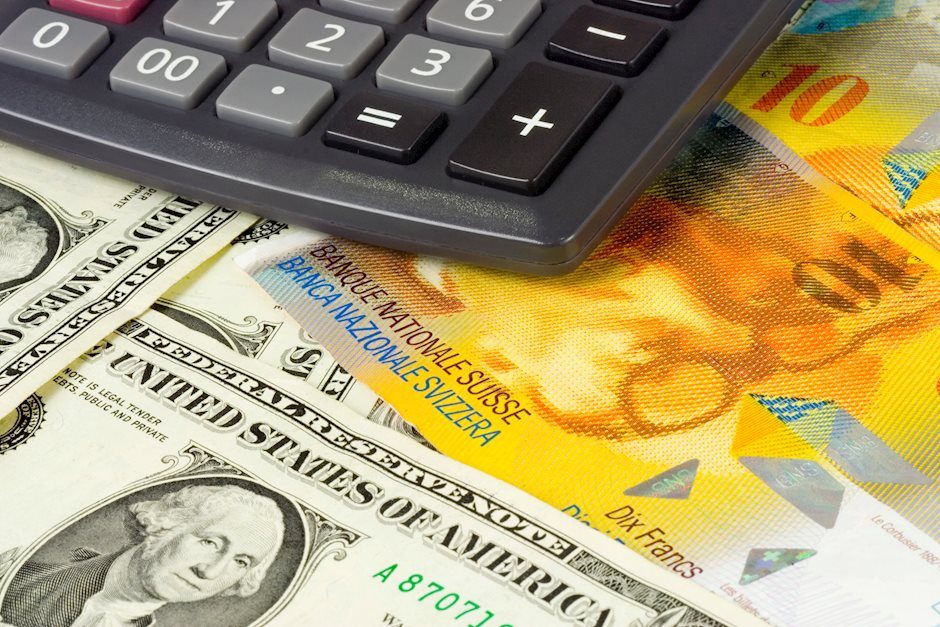USD/CHF softens below 0.8550 amid geopolitical risks
- USD/CHF trades weaker to around 0.8535 in Tuesday’s early European session, down 0.16% on the day.
- The intensifying Middle East tensions underpin the Swiss Franc, a safe-haven currency.
- Fading hopes of a big US rate cut might cap the pair’s downside.

The USD/CHF pair edges lower to near 0.8535 during the early European session on Tuesday. The ongoing geopolitical tensions in the Middle East provide some support to safe-haven assets like the Swiss Franc (CHF).
Early Tuesday, Iran warned Israel against any attacks on the Islamic Republic a week after Tehran fired a barrage of missiles on it, raising fears of wider war in the Middle East. Investors will closely monitor the development surrounding geopolitical risks in the region. Any signs of escalating tensions could boost the safe-haven flows, benefiting the CHF.
On the other hand, Friday's upbeat US jobs report prompted traders to further scale back bets for an oversized interest rate cut by the Federal Reserve (Fed) in November. This might lift the Greenback and cap the downside for USD/CHF.
Bob Parker, senior advisor at the International Capital Markets Association, noted the case for aggressive Fed rate cuts is unlikely. “Yes there is a case for modest rate cuts, there is a case for 25 to 50 basis point cuts by January next year, but a case for 50 basis point cuts at the next meeting just does not exist,” said Parker.
There is now nearly 86.0% possibility that the Fed’s target range for the federal funds rate will be cut by a quarter percentage point to 4.5% to 4.75% in November, according to the CME Group’s FedWatch tool. Meanwhile, the chance of the rate remaining at 4.75% to 5% stands at 14.0%. Investors will take more cues from the US Consumer Price Index (CPI) inflation data, which is due on Thursday. This report could offer some hints about the US inflation trajectory and influence the Fed about the future US interest rate outlook.
Swiss Franc FAQs
The Swiss Franc (CHF) is Switzerland’s official currency. It is among the top ten most traded currencies globally, reaching volumes that well exceed the size of the Swiss economy. Its value is determined by the broad market sentiment, the country’s economic health or action taken by the Swiss National Bank (SNB), among other factors. Between 2011 and 2015, the Swiss Franc was pegged to the Euro (EUR). The peg was abruptly removed, resulting in a more than 20% increase in the Franc’s value, causing a turmoil in markets. Even though the peg isn’t in force anymore, CHF fortunes tend to be highly correlated with the Euro ones due to the high dependency of the Swiss economy on the neighboring Eurozone.
The Swiss Franc (CHF) is considered a safe-haven asset, or a currency that investors tend to buy in times of market stress. This is due to the perceived status of Switzerland in the world: a stable economy, a strong export sector, big central bank reserves or a longstanding political stance towards neutrality in global conflicts make the country’s currency a good choice for investors fleeing from risks. Turbulent times are likely to strengthen CHF value against other currencies that are seen as more risky to invest in.
The Swiss National Bank (SNB) meets four times a year – once every quarter, less than other major central banks – to decide on monetary policy. The bank aims for an annual inflation rate of less than 2%. When inflation is above target or forecasted to be above target in the foreseeable future, the bank will attempt to tame price growth by raising its policy rate. Higher interest rates are generally positive for the Swiss Franc (CHF) as they lead to higher yields, making the country a more attractive place for investors. On the contrary, lower interest rates tend to weaken CHF.
Macroeconomic data releases in Switzerland are key to assessing the state of the economy and can impact the Swiss Franc’s (CHF) valuation. The Swiss economy is broadly stable, but any sudden change in economic growth, inflation, current account or the central bank’s currency reserves have the potential to trigger moves in CHF. Generally, high economic growth, low unemployment and high confidence are good for CHF. Conversely, if economic data points to weakening momentum, CHF is likely to depreciate.
As a small and open economy, Switzerland is heavily dependent on the health of the neighboring Eurozone economies. The broader European Union is Switzerland’s main economic partner and a key political ally, so macroeconomic and monetary policy stability in the Eurozone is essential for Switzerland and, thus, for the Swiss Franc (CHF). With such dependency, some models suggest that the correlation between the fortunes of the Euro (EUR) and the CHF is more than 90%, or close to perfect.
Author

Lallalit Srijandorn
FXStreet
Lallalit Srijandorn is a Parisian at heart. She has lived in France since 2019 and now becomes a digital entrepreneur based in Paris and Bangkok.

















